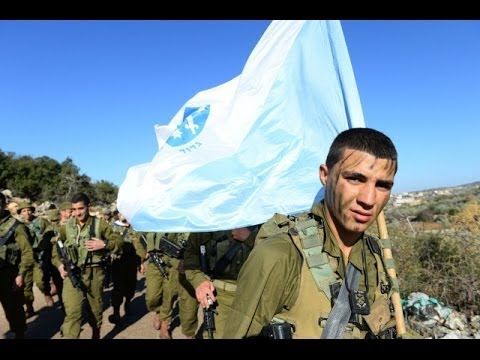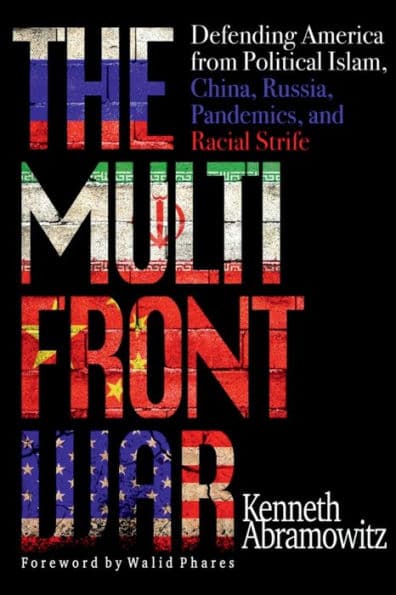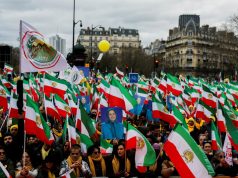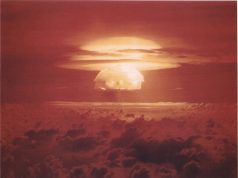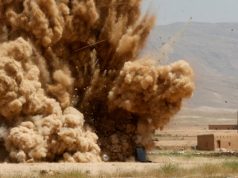.
By Ayoob Kara.
I was born in Daliyat Al-Carmel, a Druze village near Haifa. Several hundred years ago, my family arrived in this village to help the Druze quest for autonomy during the Ottoman Turkish occupation. In the past, there were hundreds of villages under Druze autonomy, from Ashkelon to Lebanon. But the Turks destroyed most of them, and because of that, you can only find 145,000 Druze people in Israel today. They are in the Carmel, the Galilee Mountains, and the Golan Heights. You can no longer find the Druze further south. The Turks also ethnically cleansed the Druze from the other areas, including the Shuf Mountain, which was the Druze area in Syria. Millions of Druze were killed, because the Ottomans thought of them like Jews and hated them.
For this reason, my family has always been supportive of the State of Israel and the Zionist Movement that predated it. We Druze believe in and fight for Israel, as it is the only nation in the region that has granted us equal rights.
Many years ago, my ancestors were the leaders of the village and they cooperated with the Jewish community in the area, including the Rothchild and Weizmann families. The leader of the British regime Major Sir Oliver built a house on our family’s land. His secretary was Naftali Herzenberg, who wrote Hatikva, the national anthem of Israel. Later on, we changed the house and made a museum in remembrance of the more than 400 fallen Druze soldiers who were killed since the cooperation between Israel and the Druze began. This is part of the heritage of Israel.
Amal Nasr a-Din, who is the President of Yad L’Benim, stated: “In 1882, Sir Oliver came here and helped free the Druze from the Turkish Army. In return, the Druze gave him a home. The late Israeli Prime Minister Menachem Begin bought this home and built the memorial for the Druze, as each of the 435 Druze who died fighting for Israel have 1,500 relatives who need support.
The Druze are reliable soldiers. In 1953, the IDF Chief of Staff asked for 700 additional soldiers to join a special campaign and the Druze gave him the personnel he needed. We do everything to strengthen the state.”
The percentage of Druze victims per capita who have died fighting for Israel is even greater than that of Jewish victims, and these fatalities are deeply felt, because the Druze are a small nation. At least 83% of the Druze serve in elite combat units. For this reason, then-Prime Minister Netanyahu came here and said this house in Daliyat Al Carmel must be a national heritage site. Indeed, our cooperation with the State of Israel goes back many years.
My grandfather, the father of my father, was part of the Jewish National Fund, the fund that established the State of Israel. He was the only Druze at this time that helped the Jewish people to establish the Israeli state. During this period, my grandfather also had a good relationship with different Arab leaders, and he was able to influence them to support the Jewish community before Israel’s independence.
One of the important Arab leaders is from Abu Ghosh. When I was a child, we traveled a lot. Yosef Abu Ghosh was like my grandfather, but he lived in the Jerusalem area. My grandfather helped the Jewish community in the Haifa area in the cavalry division. He rode a horse from Haifa to Jerusalem. He slept in Abu Ghosh in the house of Yosef Abu Ghosh, a good friend of Yitzhak Shamir.
Whenever I met Yitzhak Shamir, he asked about my grandfather and Yosef Abu Ghosh, all the time and his brother Musa Abu Ghosh. This convinced me of the importance of helping the Jews and the Jewish people’s alliance with the Druze and other Arab peoples here. This made me want to give back to my society. For this reason, in 1939, the Arab fundamentalists shot and killed my Uncle Abdullah Kara.
At this time, all of my family moved to Caesarea to help the Jewish people save and secure all of the lands in all of Israel. They only moved back to Daliyat Al Karmel after the independence of Israel in 1948. During all of this time, my grandfather and my family cooperated with the Lehi, Etzel and all of the underground Jewish organizations that needed our cooperation to establish the State of Israel. In 1947, another uncle “disappeared” due to the cooperation between my family and the Jewish community.
In 1948, my father volunteered to become part of the Israel Defense Forces to fight in the War of Independence. He foughtin that war and helped to occupy the Galilee Mountains. He got severely injured in this war. They thought that he died, but he managed to survive, and get married, and have three boys and three girls.
All three of us boys served in Israel’s 1982 War in Lebanon. The youngest brother, Eli Kara, died along the border with the Syrians in the east of Lebanon. He was the last victim before the withdrawal from Lebanon to what we call South Lebanon. My older brother, Vagi, was severely injured as well, in the center of Lebanon. He suffered a lot, but he managed to survive foro a number of years, before he ultimately succumbed to his injuries. I was severely injured as well near Beirut. I spent months at Rambam Hospital in northen Israel and was in a cast for a long while.
My mother and father became depressed from this situation for these two brothers had no family. Every day, every month, became unbelievably horrific. I tried to make them feel better. But when Vagi succumbed to his injuries, my parents also died from the sorrow of losing two sons. Losing two adult sons is very painful for a mother and father. Not every woman can endure losing two soldier sons in the army and not every man can endure losing two sons, two brothers, and two cousins. Not everyone went through this situation, but those who did suffered greatly.
It is not easy to find yourself alone with no brothers in this culture where everyone has big families. In the Druze culture, small families have ten sons and daughters, and you can find 20 in some families. It is not easy to be a leader when you do not have a big family. Thus, my family made the ultimate sacrifice for the State of Israel.
However, I and the rest of the Druze nation are proud of our contributions to Israel. We are the descendants of Jethro. In the Bible, Jethro was the eyes and ears of Moses. He helped Moses when pharaoh wanted to kill him. No one else wanted to host him. Tzipporah, the daughter of Jethro, the prophet of the Druze nation, invited Moses to come to her home and to meet her family. After that, she married Moses and Jethro’s descendants became part of the Jewish nation.
Jethro and Moses determined the best way to bring the Jews out of Egypt. On Mount Sinai, Moses accepted the Torah and trusted Jethro more than anyone, including Aharon, his brother. Centuries later, after the Second Temple was destroyed, the Druze nation become a discreet nation, apart from the Christians. They pretended to be Muslims, in order to survive, because during the hundreds of years that followed, Islam continued to attack the Druze nation throughout the region. Yet the Druze nation survived and remained true to their faith.
Ayoob Kara was born in the Israeli Druze town of Daliat el-Carmel in 1955. He completed his army service in the Israeli Defense Forces with the rank of major and studied business administration and public policy. He served in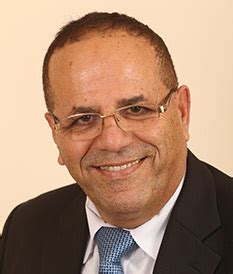 the Knesset from 1999 until 2006, and as Deputy Minister of Development of the Negev and the Galilee, Minister at the Prime Minister’s Office for Special Functions, and as Israel’s Minister of Satellite Communications and Cyber.
the Knesset from 1999 until 2006, and as Deputy Minister of Development of the Negev and the Galilee, Minister at the Prime Minister’s Office for Special Functions, and as Israel’s Minister of Satellite Communications and Cyber.
In 2015, Kara recognized an opportunity for bridging diplomatic relations between Israel, the Middle East, the Gulf countries and other Islamic states in the region, and he promoted a regional economic conference between the countries. After the election of President Donald Trump, Kara met with him, which led to the economic conference in Bahrain, which concluded that there is a need for a non political body to initiate and promote the economic initiatives for the region.
Ken`s new book The Multifront War is now available in 190 countries via Amazon and also on BNs in the US. Buy it now!
.
.
.

